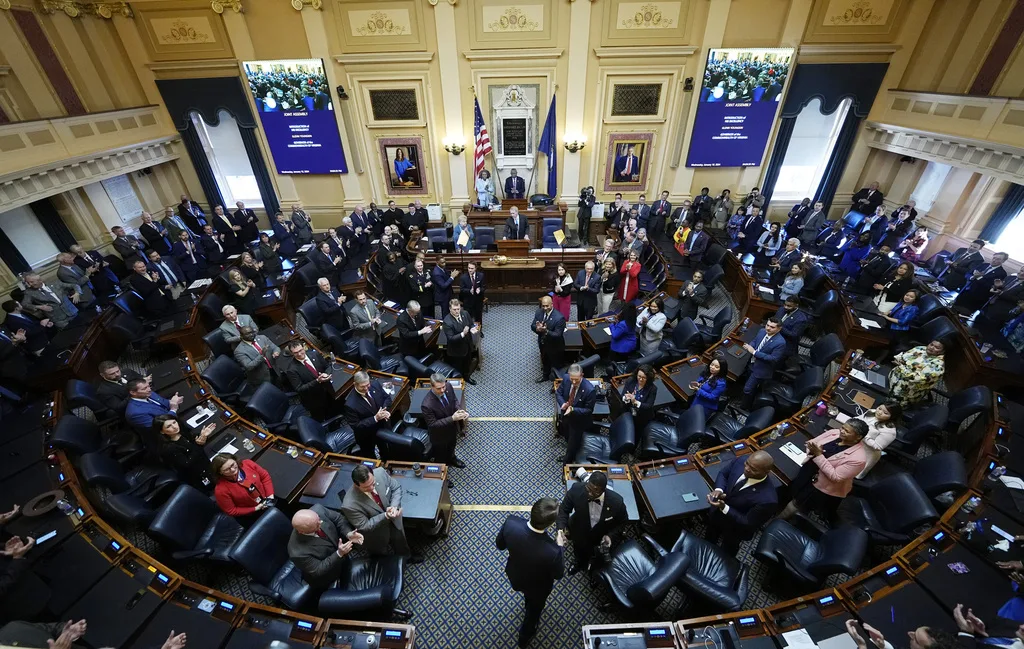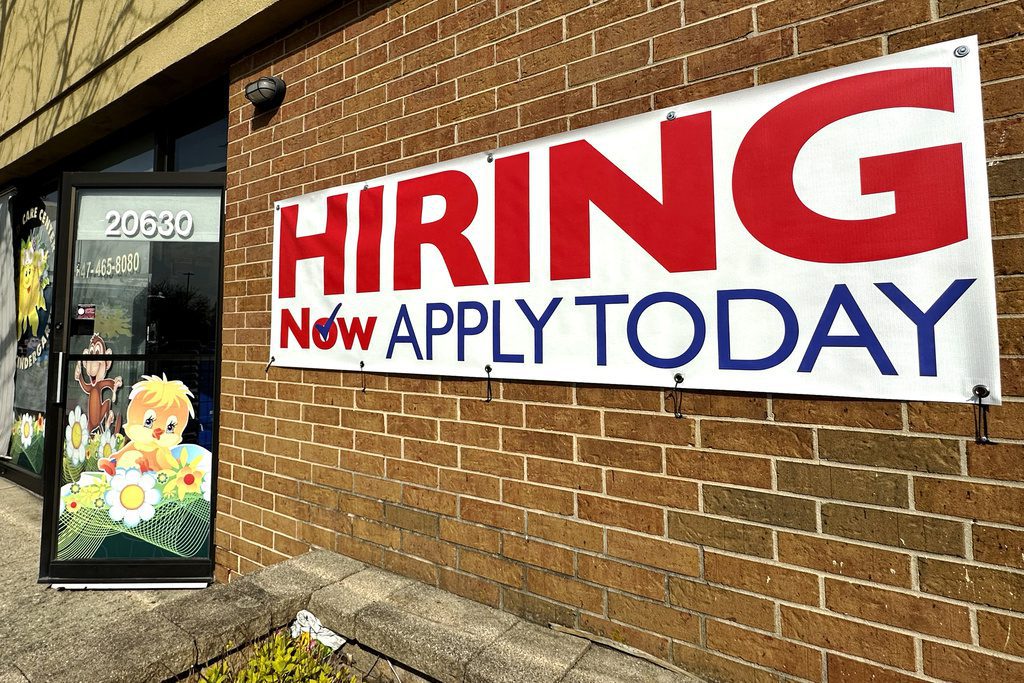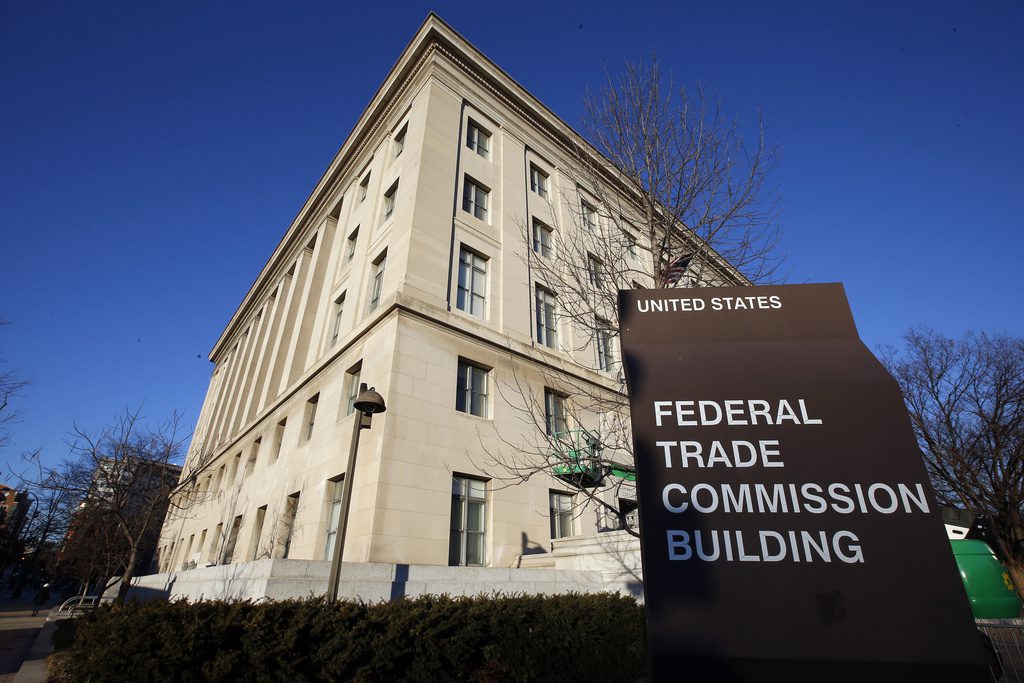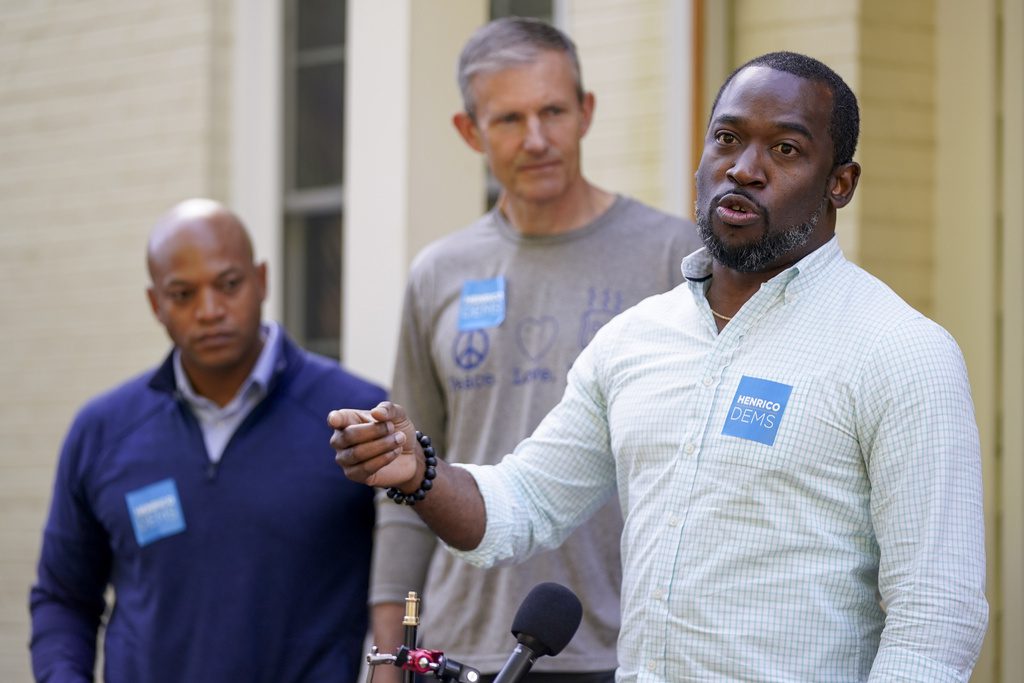
Virginia Gov. Glenn Youngkin, bottom center, shakes the hand of Del. Cliff Hayes, D-Chesapeake, right, as he arrives in the House chambers to deliver his State of the Commonwealth address before a joint session of the Virginia General Assembly at the Capitol, Wednesday, Jan. 10, 2024, in Richmond, Va. (AP Photo/Steve Helber)
This week marks a sort of halftime in the Virginia legislative session: crossover. It’s a word that gets thrown around a lot while the General Assembly is in session, but what is it? And why does it matter?
“Crossover Day” in the Virginia General Assembly is the day in the legislative session bills must pass by in their respective chambers in order to be considered in the other chamber. In other words, a bill must pass in the House of Delegates before it can even be considered in the Senate, and vice versa. This year, that day is Feb. 13. If a bill doesn’t pass one chamber by then, it’s done for the year.
After crossover, the only bills each chamber can consider must have already passed the other legislative chamber–the Senate can only hear House bills, and the House can only hear bills that have already passed the state Senate. This year, the General Assembly will wrap things up on March 9.
As a bit of a reminder on Virginia’s legislative process, a bill is first introduced by its “chief patron” (or legislator) when the General Assembly convenes in January. The bill then gets assigned to a committee, and then sometimes a subcommittee, where it will either languish via a parliamentary maneuver or be reported to the full House or Senate, where it will be either passed or defeated. If a bill passes both legislative chambers, it is sent to the governor’s desk, where they will either veto it, sign it into law, or allow it to become law without their signature.
As Virginia approaches 2024’s crossover, the state’s government is in a much different place than it was this time last year. After campaigning on abortion rights and winning back control of the House of Delegates in November, Democrats now control both chambers of the state legislature.
Democrats have used the first half of the commonwealth’s legislative session to reject abortion bans and increase access to contraception, pass bills to raise the state’s minimum wage, and push others to raise teacher pay. They’ve also advanced gun reform, gone after the high price of prescription drugs, passed bills to eliminate legacies admissions at the state’s public colleges and universities, and more.
The next step in determining whether all these bills become law depends on what happens tomorrow.
Politics

Biden administration bans noncompete clauses for workers
The Federal Trade Commission (FTC) voted on Tuesday to ban noncompete agreements—those pesky clauses that employers often force their workers to...

Democratic shakeup in Virginia primaries for governor, lieutenant governor
Richmond Mayor Levar Stoney quit his bid for governor and jumped into the race to be the Democratic nominee for lieutenant governor. The race for...
Local News

The zodiac signs of 12 iconic women offer insight into their historic accomplishments
Zodiac signs can tell you a lot about someone’s personality. Whether they’re an earth, water, air, or fire sign, these 12 categories (which are...

Virginia verses: Celebrating 5 poetic icons for National Poetry Month
There’s no shortage of great writers when it comes to our commonwealth. From the haunting verses of Edgar Allan Poe, who found solace in Richmond's...





